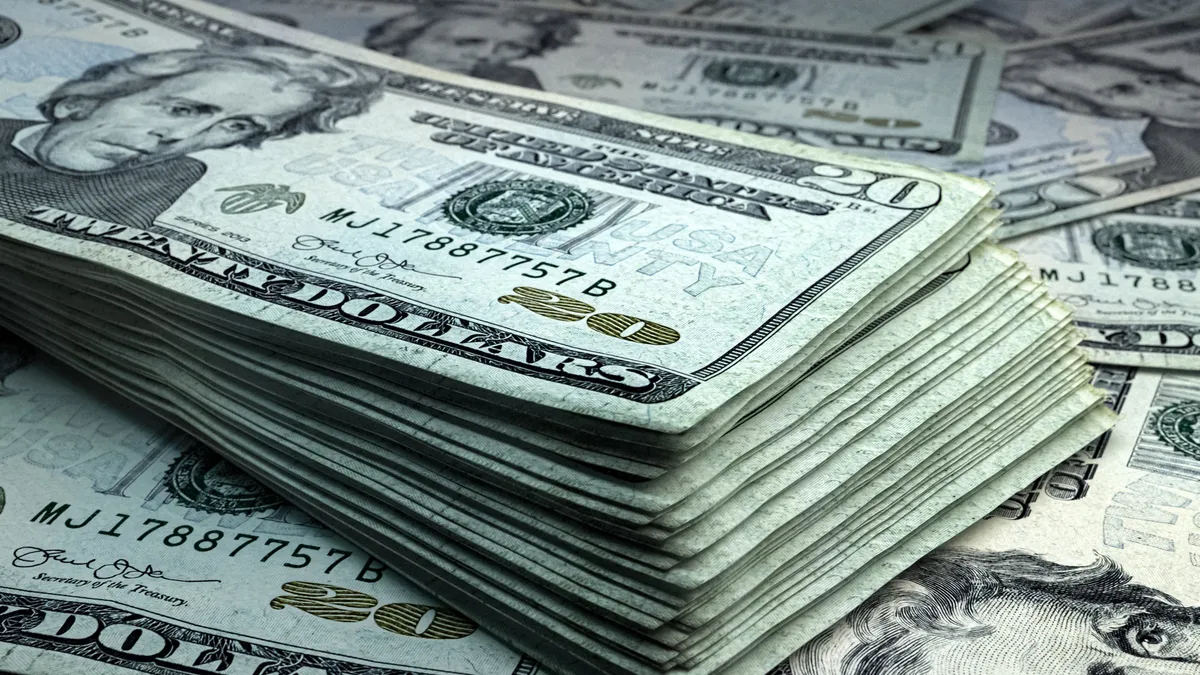Dive Brief:
- Expectations for inflation over the coming year surged to 7.3% this month, the highest level in decades, as consumers worry that sweeping tariffs set by President Donald Trump will push up price pressures.
- Anxiety over tariff-induced inflation has eroded consumer sentiment by nearly 30% since January, with the outlook among Republicans sagging 7% in May, the University of Michigan said Friday.
- “Tariffs were spontaneously mentioned by nearly three-quarters of consumers” compared with nearly 60% in April, Joanne Hsu, director of the university’s consumer surveys, said in a statement. “Uncertainty over trade policy continues to dominate consumers’ thinking about the economy,” she said.
Dive Insight:
Consumer sentiment and inflation expectations have worsened this year even as so-called hard data reveal stable price pressures and robust hiring.
U.S. payrolls rose 177,000 last month, with unemployment holding steady at a historically low 4.2%.
Meanwhile, inflation eased in April to the slowest annual pace since February 2021. The consumer price index rose a less-than-expected 0.2% last month and 2.3% over 12 months, the Bureau of Labor Statistics said Tuesday.
Also, retail sales remained positive in April, rising 0.1% compared with a 1.7% monthly gain in March, the Commerce Department said Thursday.
Still, “consumers continue to express somber views about the economy,” Hsu said.
The Trump administration, after agreeing with the U.K. early this month to trim import duties, announced on May 12 a reduction of tariffs on China imports to 30% from 145%. The reprieve on the higher levies, aimed at providing time for trade negotiations, is set to expire after 90 days.
Even after recent cuts, U.S. consumers face an effective tariff rate of 17.8%, the highest level since 1934, according to the Yale Budget Lab.
Current import levies in the short run will push up the price level by 1.7% and cost the average U.S. household $2,800, the Yale Budget Lab said on May 12.
Year-ahead inflation expectations jumped this month “among Democrats and Republicans alike,” Hsu said. Long-run expectations for inflation increased to 4.6% from 4.4% in April, “reflecting a particularly large monthly jump among Republicans,” she said.
Walmart, the largest U.S. retailer, said Thursday that it will need to raise prices in response to Trump administration levies on imports from virtually every U.S. trade partner.
“We’re positioned to manage the cost pressure from tariffs as well or better than anyone,” Walmart CEO Doug McMillon said on a call with analysts. “But, even at the reduced levels, the higher tariffs will result in higher prices.”
A record 411 companies in the Standard & Poor’s 500 index cited “tariff” or “tariffs” during earnings calls from March 15 through Thursday, FactSet Senior Earnings Analyst John Butters said Friday in a report.
The previous record high was 260 companies that raised tariffs when discussing results from the fourth quarter of 2020, Butters said.















